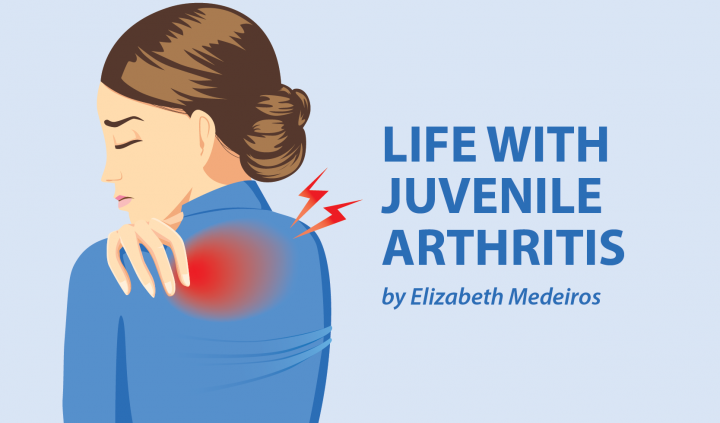Instagram is by far my favorite social media platform. (You can follow me @girlwitharthritis.) I love to scroll through pictures and post about my arthritis journey.
Most of the comments I receive are uplifting. But every so often, I get spammy suggestions about how to cure myself. My least favorite one is that being positive can take away the pain. And I’m not the only one who gets comments like these — many of my fellow arthritis warriors have been told that, too, by strangers and sometimes by loved ones.
I think it’s vital to continually work toward good mental health. But it’s equally important to know that suffering from depression or anxiety does not cause juvenile arthritis (JA), and counseling does not make JA go away.
My experience
While I take those comments with a grain of salt, it was harder when I was younger. When I was a teenager, I sometimes felt bombarded with the message that poor mental health was the cause of my JA, and that therapy would magically make my treatments work. Admittedly, I was very depressed at the time due to a combination of isolation and medication side effects.
But those messages didn’t make me want to see a therapist or encourage me to get better. Instead, they made me bitter, because it often felt as if I was being told that the pain was all in my head. Or that my illness was my fault.
I felt horribly insecure for many years and became extremely defensive. I was worried that even the most compassionate doctor would say the pain was in my head. I’m still very guarded to this day. And I know I’m not alone, as I’ve heard similar stories from others with inflammatory arthritis.
Depression and JA
I don’t deny that poor mental health can have a horrid effect on the body. Depression and anxiety can cause physical pain and make it hard to adhere to therapy. Mental health issues can aggravate your body’s health in various ways. Many young people with juvenile arthritis suffer from depression and can benefit from seeking treatment.
If your child seems depressed or anxious, talk to them about their feelings. It’s important to recognize that they are going through a lot and might be struggling to cope. Mental health is such a sensitive topic, and every person requires a different approach. But I believe it’s essential to validate their pain and suffering.
How to help
First and foremost, recognize that their pain is real. It’s so hard to cope with an invisible disease that causes hidden suffering. Kids with JA often deal with others unfairly judging them or implying that they are exaggerating or faking. They need to hear that you believe them.
I think it’s also essential to reassure them that being diagnosed with a mental illness does not negate the severity of their juvenile arthritis. It does not mean they’re overdramatic and that the pain is all in their head.
Parents’ attitude
Parents, your attitude and your words can affect how your child approaches their mental health for the rest of their lives. It’s vitally important to remind your child that the way they feel, mentally and physically, is not their fault. And that therapy isn’t a punishment or a cure — it’s a tool to help them feel better mentally, which may benefit their overall health.
Saying things like, “Being depressed only makes the pain worse,” or “Maybe the medicine would work if you had a better attitude,” won’t make teens listen. Instead, I suggest offering words of comfort such as, “It must be hard. Do you think talking to someone would help you get through it?” Acknowledging that they’re struggling and offering therapy as a way to cope is a more positive, encouraging method.
Finding help
Even with this approach, it can be challenging to get your teen on board with getting help. It can be hard to accept when you’re suffering. Be patient and encourage them that seeking help is a positive thing. And let them know their options and reassure them that there’s no shame in it.
Eventually, I found a healthcare team that supported me and didn’t make me feel as if the pain was all in my head, even when I did struggle with mental health issues. I also learned how some medications affected me and to avoid anything that sets me off. Over time, things got better with the support of those who validated my experience.
***
Note: Juvenile Arthritis News is strictly a news and information website about the disease. It does not provide medical advice, diagnosis, or treatment. This content is not intended to be a substitute for professional medical advice, diagnosis, or treatment. Always seek the advice of your physician or other qualified health provider with any questions you may have regarding a medical condition. Never disregard professional medical advice or delay in seeking it because of something you have read on this website. The opinions expressed in this column are not those of Juvenile Arthritis News, or its parent company, BioNews Services, and are intended to spark discussion about issues pertaining to juvenile arthritis.

